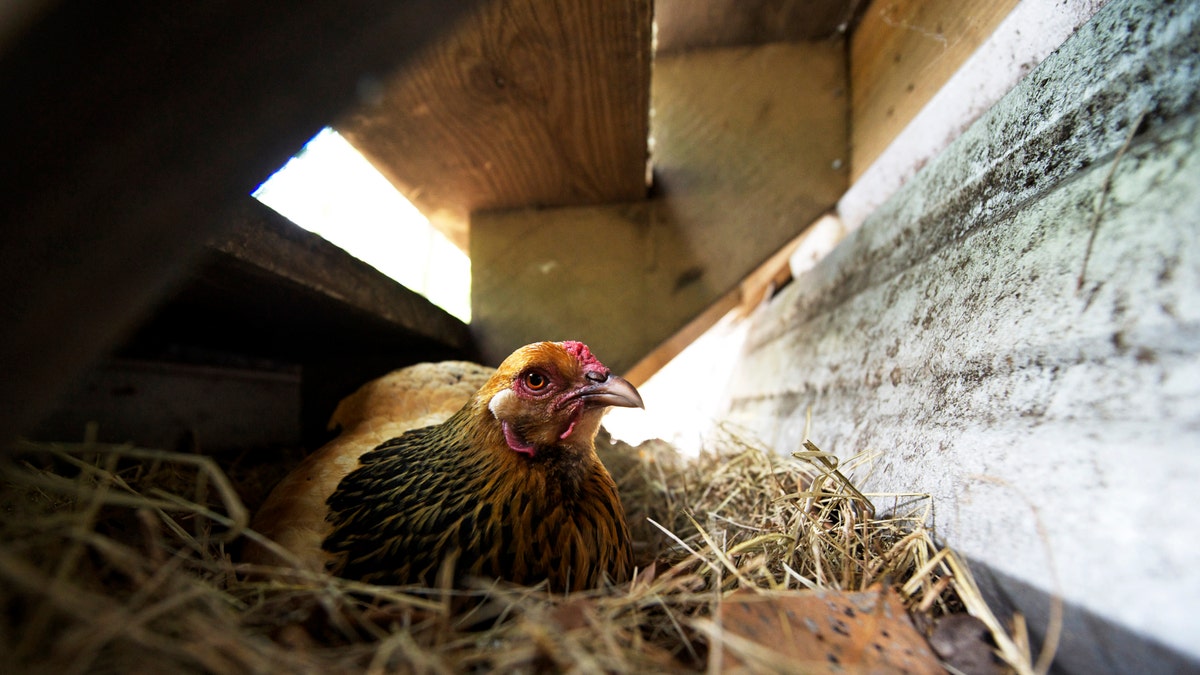
(REUTERS/Steven Johnson)
People who keep small poultry flocks may be at an increased risk for salmonellosis, but the infections are preventable, researchers say.
The growing local foods movement has sparked a rise in the number of people keeping small flocks of chickens or ducks at home, and a rise in human infections with Salmonella bacteria has been linked to birds from mail-order hatcheries, according to a new study.
"We have seen an increasing number of outbreaks of Salmonella infections in people being sick that have been linked back to having chickens and ducks in your backyard," said Dr. Casey Barton Behravesh, who led the study.
Barton Behravesh, a Lieutenant Commander in the U.S. Public Health Service, is affiliated with the Division of Foodborne, Waterborne, and Environmental Diseases at the Centers for Disease Control and Prevention (CDC) in Atlanta.
She and her colleagues reviewed the available research since the rising infection rates have been in conjunction with the increasing popularity of having backyard flocks, and it was important for her team to document the problem, she told Reuters Health.
"Salmonella in poultry, whether we're talking about chickens or ducks, or even geese or turkeys, go together - its' something that's a normal germ found in the intestinal tracts of the birds," Barton Behravesh said.
The bacteria don't always make the birds sick, she said, but Salmonella can coat their feathers and beaks, be present in their environment and can lead to human illness.
The researchers report that 45 outbreaks of salmonellosis (Salmonella infection) in humans due to contact with live poultry were reported from 1996 to 2012. The outbreaks resulted in 1,581 illnesses, 221 hospitalizations and 5 deaths.
"We've seen outbreaks and illnesses occur all year around, although there is a peak in the spring season and we've really documented illnesses all across the United States, so it's not a regional issue," Barton Behravesh said.
It's difficult to know for sure how many people keep backyard flocks, but the researchers said that a survey of four cities had found 1 percent of households owned chickens and 4 percent were planning on buying backyard flocks.
The study team also found that common risk factors for infection included bringing baby chicks indoors, cleaning the birds' food and water dishes in the kitchen and kissing or cuddling with the birds, which are often seen as pets rather than livestock.
Barton Behravesh said most people know that handling raw poultry meat in the kitchen can be a problem, but many people don't know the live birds can carry salmonella that can make people sick.
"Most backyard chicken owners are new to this, so it's exciting to them," said Dr. Jeff Bender, a veterinarian and co-director of the Upper Midwest Agricultural Safety and Health Center at the University of Minnesota. "They view their animals not only as poultry, but they view them as pets too."
He agrees Salmonella infections are becoming more common among backyard flock owners.
"From surveys that we've done, we've noticed that not many people are concerned about Salmonella, influenza, or Campylobacter," Bender said, adding that's probably because new chicken owners aren't aware of those diseases, or that live poultry can spread them.
But backyard chicken owners generally are well educated and most of them are asking questions and getting their information from the Internet, he said.
"We just have to make sure we provide reputable places that they can go to and that they feel comfortable using," he said.
The CDC has a tip sheet for keeping backyard poultry here.
Prospective buyers of new chicks or poultry should recognize that the birds can have Salmonella or other diseases, and that hand washing is important, Bender said.
"Supervision - especially with children - is incredibly important too," he said.
Most people get their birds from agricultural feed stores or have them shipped to their homes directly from the hatcheries, and Bender said the first step is to find a reputable source.
"Ideally a source that has a Salmonella control program or is part of the National Poultry Improvement Plan, which basically is a plan that says 'we're trying to raise the healthiest birds possible'," he said. The next step is to try to keep the birds healthy.
"Make sure they're being fed appropriately and they're not stressed and they are kept in the right environment," he said.
"There are a lot of benefits of having backyard flocks (and) people need to know the risks so they can enjoy the birds without getting sick," Barton Behravesh said.
Additional precautions, the study authors write in the journal Clinical Infectious Diseases, include keeping birds away from young children, the elderly or people with immune system problems, and keeping the birds out of the house or parts of the yard where people eat or drink.
In addition, all equipment, such as cages and food and watering containers, should be cleaned and disinfected, but that shouldn't be done in the house, they write.
